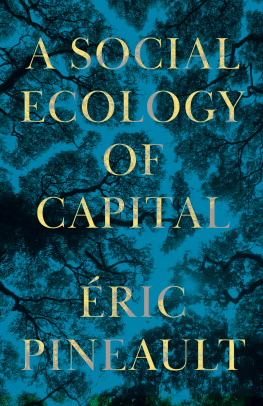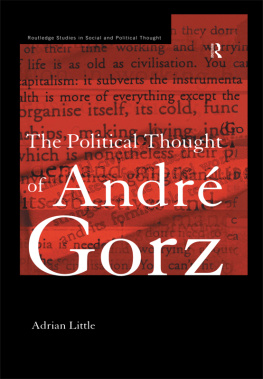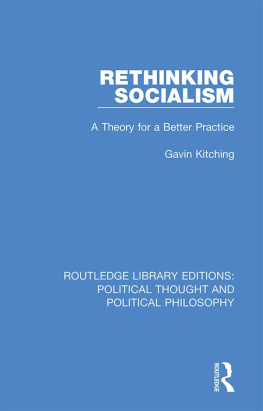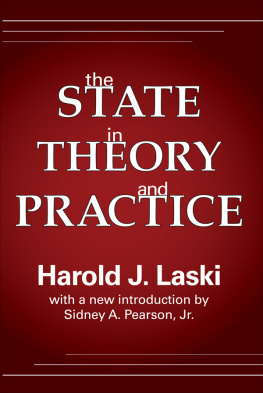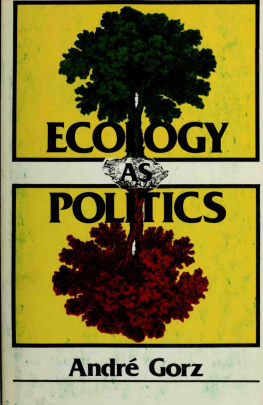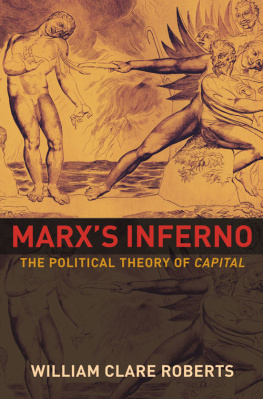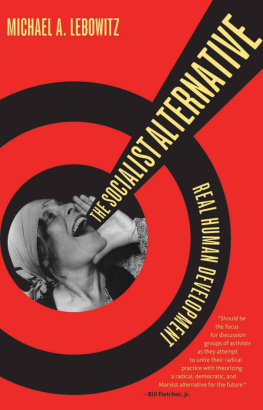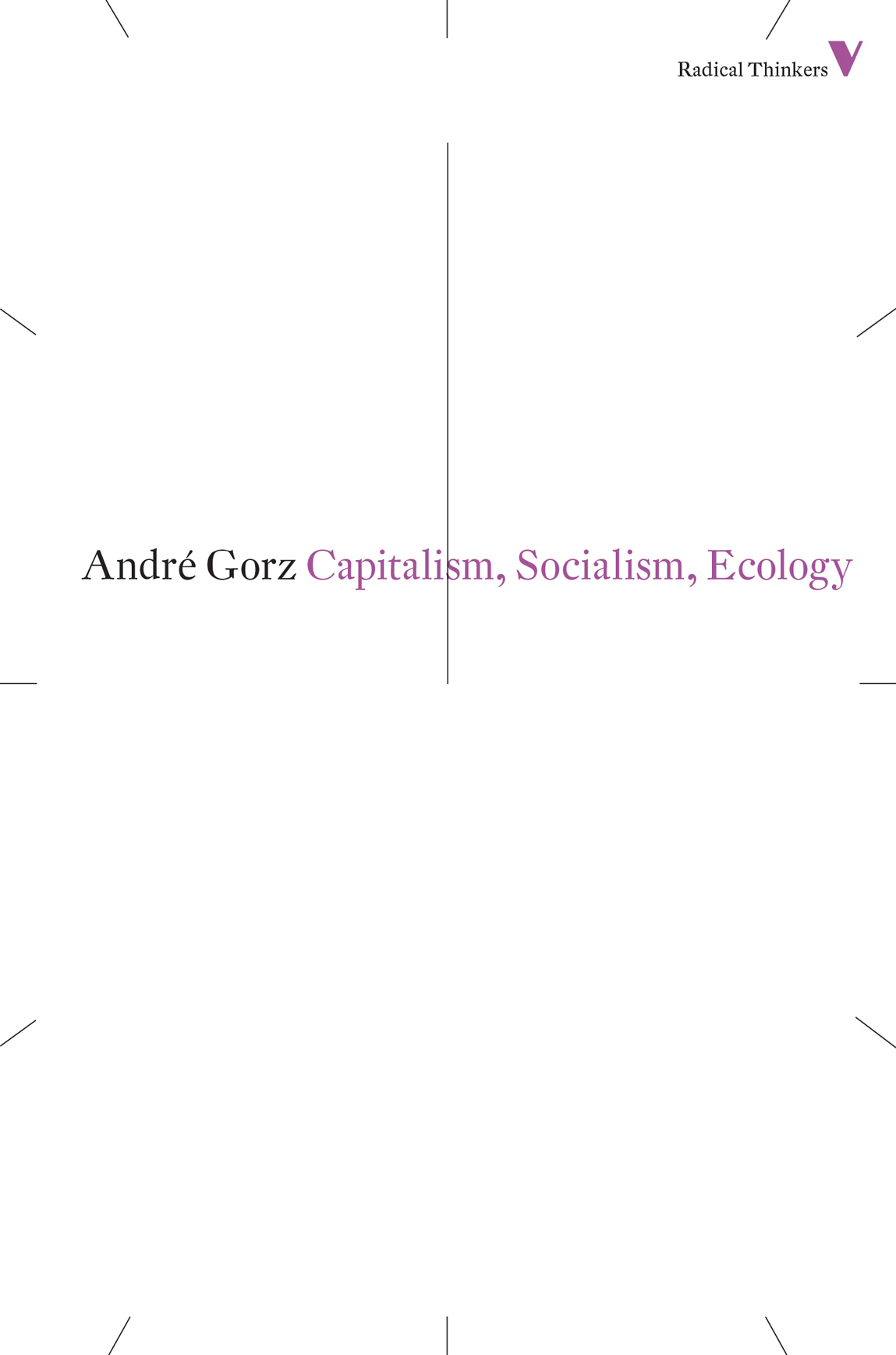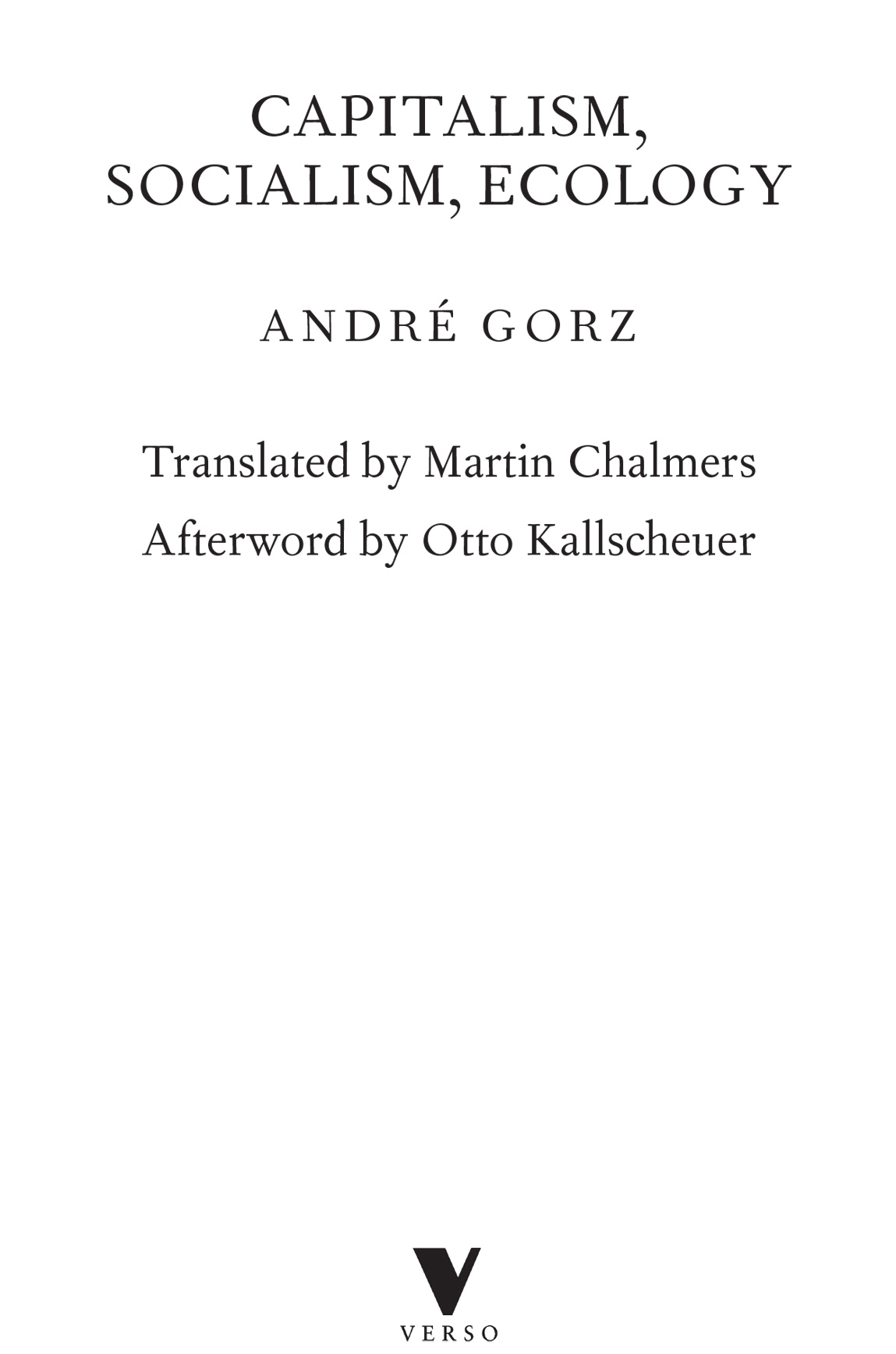Published by Verso 2012
Verso 2012
First published by Verso 1994
Afterword Otto Kallscheuer 1991
Translation Martin Chalmers 1994
First published as Capitalisme, Socialisme, cologie
ditions Galile 1991
All rights reserved
The moral rights of the authors have been asserted
Verso
UK: 6 Meard Street, London W1F 0EG
US: 20 Jay Street, Suite 1010, Brooklyn, NY 11201
www.versobooks.com
Verso is the imprint of New Left Books
eBook ISBN: 978-1-78168-038-4
Trade Paperback ISBN: 978-1-78168-026-1
British Library Cataloguing in Publication Data
A catalogue record for this book is available from the British Library
Library of Congress Cataloging-in-Publication Data
A catalog record for this book is available from the Library of Congress
v3.1
Contents
Preface
As a system, socialism is dead. As a movement and an organized political force, it is on its last legs. All the goals it once proclaimed are out of date. The social forces which bore it along are disappearing. It has lost its prophetic dimension, its material base, its historical subject; History and the technical changes that are leading to the extinction, if not of the proletariat, then at least of the working class, have shown its philosophy of work and history to be misconceived.
Between 1961 and 1988, the size of the industrial working class shrank by 44 per cent in Great Britain, 30 per cent in
During the same period, a great number of jobs have been created in the service sector; but these are often part-time and/or precarious, low-skilled jobs, which offer no opportunities for career development and bear no relation to what constituted the essence and value of work and the workers in socialist doctrine. It is as though the industrial working class had declined and been partially supplanted by a post-industrial largely female proletariat which, by dint of the precariousness of its condition and the nature of its tasks, cannot derive from its work either a social identity or a mission to wield economic, technical or political power.
In short, work has changed, and the workers have changed too. We may ask what proportion of the workforce would still define their identity in terms of their work and their working lives. Or what proportion still regard their work as the focus of their lives. France is one of the rare countries that exhibits no desire to answer these questions: no newspaper or magazine, polling institution, trade union, employers organization, ministry or university research centre carries out studies into the way attitudes to work are changing, or into ideas about work and life. I shall therefore take the results of the most recent survey published in West Germany, where, it must be remembered, industrial relations and working conditions are notoriously better than in France: only for 15 per cent of those questioned (35 per cent of senior managers) did their professional life still take priority over their personal life. For the immense majority, their work is no longer their life. It is no longer either qualitatively or quantitatively the focus of their life.
From the quantitative point of view, working lives are beginning later, ending earlier and being interrupted more frequently; at the same time, annual, full-time working hours fell from 2,150 in 1960 to 1,650 in 1990, and a further 150 hours can be deducted from this figure for sick leave. This amounts to a 23 per cent reduction in individual, annual, full-time working hours over a thirty-year period. Now, during those thirty years (I am still using the German figures), the annual volume of work (i.e. the total number of hours worked by all the members of the workforce) fell by 28 per cent, whilst production per hour of work increased threefold, and unemployment or, rather, the impossibility of earning a living assumed disquieting proportions.
What, in these conditions, is a Left perspective? What does it mean, in these conditions, to be a socialist? If it means fighting for the emancipation of the workers , then socialists are merely the elitist ideological spokespersons for those 15 per cent who still define themselves chiefly by their work, who feel they are workers first and foremost, and experience their work as an activity that is at least potentially fulfilling and creative. But should not socialism precisely make all work a creative and fulfilling activity? I certainly agree that it should be so, provided that we do not forget that employment paid, productive work occupies a proportion of our time (less than one-fifth of our waking lives) which is declining ever more rapidly, and that unpaid activities whether necessary or freely chosen, private or social cannot, in all honesty, be equated with that work on which the consciousness of belonging to the working class was built the awareness of having interests, as a worker, which are opposed to those of capital. Not all work is work in the same sense of the term. Not all work is a source of social identity or class belonging.
In these conditions, how are we to understand the future place of employment in the life of individuals and society? What is the future for a civilization whose increasingly efficient technologies create more and more wealth with less and less labour? Can we exit from the wage-based society without society as such being riven by antagonisms between an increasingly opulent group of privileged individuals and an ever-growing number of social outcasts. Can the wage-based society be saved by increasing the number of jobs which the founding fathers of political economy termed unproductive? Can it be saved by indefinitely continuing to monetize, professionalize and turn into paid occupations even the most basic daily activities? Or do we not have to find a source of activity and mode of social integration to replace wage-labour? Must we not go beyond the society of full employment and plan for a full activity society in which each persons income is no longer the price for which they sell their labour?
Does not this exit from the wage-based society throw capitalism itself, as an economic and social system, into question? Is it not for want of being formulated, comprehended, taken in hand by a political project, that such a questioning takes the negative form of disorientation, of an absence of perspective, a sense of insecurity and emptiness? Does it not seem more urgent than ever, now that the Soviet model has collapsed, to get beyond capitalism to a society in which the economic values of efficiency, profitability and competitiveness cease to be dominant, to a society which makes use of the economy for its own higher ends instead of being forced to serve it?
The term socialism no longer refers to any existing social order , nor even to any model of society that can be brought into being in the long or short term. Does this mean, then, that the socialist perspective and the reference to socialism have lost all meaning? Can we forget that capitalism dominates the world economy without needing to offer the world a social order or model of society? Can we allow ourselves to forget that our societies are capitalist societies, and that socialism does not need to define itself in terms of another social system existing elsewhere: it defines itself as opposition to capitalism that is, as a radical critique of forms of society in which the social balance of forces, decision-making processes, technology, work, structures of everyday life, patterns of consumption and models of development all bear the stamp of a concern for the greatest possible profitability.


